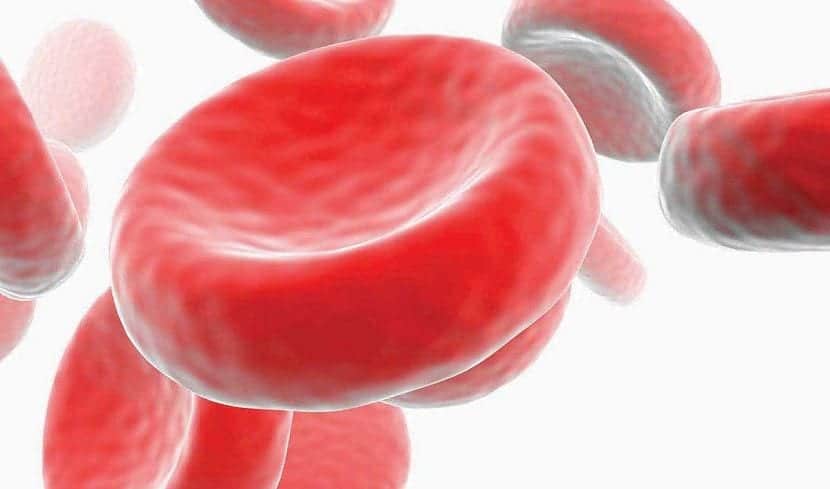
Large amounts of food contain bacteria and we often don't think about them. Bacteria have the stigma of being harmful and bad for the body, however, we also find healthy bacteria for our body.
We want you to learn to detect which are the most common bacteria in food, what damage they can generate in our body and why they can be a double-edged sword.
It must be taken into account that the consumption of a contaminated food can be harmful to our health. It can cause poisoning and can reach our digestive system and cause damage and ailments. That is why it is necessary to avoid food in bad condition because otherwise, we would need pharmacological aids to return to our normal function.
In this article we will tell you which are the most common bacteria that we can find. Pay attention and take into account good food hygiene practices, as they are able to avoid many scares. For example: always keep the cold chain, defrost food properly or not overexposing to air or overheating food too much.
These are the damages that bacteria can cause in our body
When we consume a bacteria that causes damage to our body, it colonizes our digestive tract and alters the normal function of our system. Once this happens, it causes us diarrhea, vomiting, pain, gas and in certain situations fever.
When we accidentally take a bacterium, it will also prevent us from properly absorbing and digesting nutrients properly, which would eventually lead to a nutritional and dietary deficiency.
As for more serious damage, could cause problems in certain vital organs such as the liver. Some bacteria can even cause hepatitis, however, this pathology is usually caused by viruses that can be present in food.
Most common bacteria that we can find in food
These three strains of bacteria that we are going to see are the ones that are usually most present in food, they usually colonize the digestive tract and If we do not have good food hygiene practices, it could cause us discomfort.
Clostridium
This bacterium is the cause of botulism, this pathology can cause a progressive paralysis of the muscles of the human body and over time, it can cause death.
This bacteria is found in foods that are preserved and have not been properly sterilized., can be found in tomato sauces. However, we do not have to be alert, since this bacterium dies when it is in high temperatures, so when we cook it usually completely ends with it.
Anyway, it is very important to make sure that the packaged food we buy has not lost its vacuum, we must check that they do not present deformations on the outside.
If we verify that it is not in conditions, we must discard the product and not consume it, it is important to pay attention to the dates of best before use.
Salmonella
This bacterium is typical to be found in meat and eggs. It is found in the intestines of many animals and can be transmitted by contact with the fecal remains of animals.
Salmonella can generate intense symptoms that can cause vomiting, diarrhea and abdominal cramps. This can lead to dehydration and if time passes and the person's condition worsens, medical attention will likely be needed.
It is in a certain way common to become infected with this bacterium, because it can be found in products that we consume that are made with eggs, such as mayonnaise or directly fried eggs in a restaurant. When there are no suitable conditions to keep food in good condition, pathogens that multiply at room temperature can proliferate.
Campylobacter
In this case, it is a bacterium, a pathology that causes inflammation at the intestinal level. This bacterium can destabilize our body and we can suffer severe colic, diarrhea and you can even detect blood in the stool and episodes of high fever. It will always depend on the strain ingested and the amount of bacteria that we have consumed.
This pathogen can be found in water since it can live in water at the same time that it can live in other foods such as poultry. If raw meat is consumed it is highly dangerous, however, if food is sterilized and the cooked pWe will make sure that this microorganism is completely eliminated and we are not in danger.
Are all common bacteria harmful to the body?
As you know, not all the bacteria we consume are bad for the body, you have heard about the lactobacillus they contain yogurts or kefir, it is a very beneficial bacteria for digestion.
Are all common bacteria harmful?

Lactobacillus
As we said, These bacteria are found in all dairy foods that have undergone a fermentation process. So the most common is to find them in yogurts and kefir. In addition to improving the digestive function of our intestines, they can also reduce the incidence of inflammatory bowel diseases.
In addition, they manage to reduce diarrhea associated with the chronic use of antibiotics.
Bifidobacterium
In the same way as the previous case, these microorganisms are typical of dairy products that have undergone a previous fermentation. You can also get these healthy bacteria not only through food but also through dietary supplements.
Its regular intake is capable of improving possible food intolerances, and it also reduces the incidence of the development of neurodegenerative pathologies in the medium and long term, since it produces an increase in intestinal impermeability.
We have to take precautions with the food that we can take if they are in bad condition, however, it is convenient to have healthy bacteria to improve our intestinal health. Consult with your doctor so that he can better guide you to perfect health.

